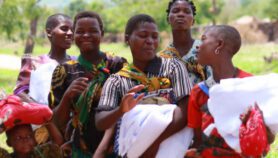Send to a friend
The details you provide on this page will not be used to send unsolicited email, and will not be sold to a 3rd party. See privacy policy.
Below is a round up of news from or about Sub-Saharan Africa for the period 14–27 August 2008.
Coastal African cities threatened by climate change
Cities along the West coast of Africa from Mauritania to Cameroon will be underwater as a result of rising sea levels by the end of the century, environmental experts say. A separate report from South Africa, says Cape Town has a one in five chance of severe flooding within 25 years as a result of global warming.
Nigerian research positions investigated for ‘poor performance’
Nigerian geology and engineering researchers supported by the Petroleum Technology Development Fund are being investigated for poor performance over the last six years. Seven universities received grants for research positions to boost offshore oil drilling technology but four are now under investigation. More>>
African researchers breed designer sorghum
Using a new breeding technique, researchers from the International Crops Research Institute for the Semi-Arid Tropics have made sorghum, millet, maize and rice more resistant to the parasitic striga witchweed. Researchers in Eritrea, Kenya, Mali and Sudan say five weed-resistant sorghum varieties did well in initial field trials. More>>
Tanzanian cars to run on natural gas
Tanzania plans to have 300 cars running on a cheaper hybrid fuel of petrol and compressed natural gas by March 2009. Three gas filling stations will be built as part of the plan. Tanzania currently uses two natural gas deposits to generate power for a brewery, a glass factory and a cement company. More>>
Nigeria, South Africa step up clean energy efforts
Gas thermal, solar, wind and waste-to-energy plants form part of efforts to repair Nigeria’s damaged electricity infrastructure. Meanwhile, the world’s first hybrid wind-and-solar generator is being tested in low-income housing in South Africa. The moves come as Nigeria and South Africa were named the continent’s worst greenhouse gas polluters at a UN Climate Change conference held in Accra, Ghana.
Zambia malaria workers battle baffling test instructions
Instructions on how to use rapid diagnostic tests for malaria need to be clarified for use by community health workers in rural regions, researchers say. Fortunately, well written instructions plus training ensures high performance, according to their study conducted in Lusaka, Zambia. More>> ![]() [2.5MB]
[2.5MB]
Tuberculosis drugs must be tested on children
Children must be involved in future studies of new tuberculosis treatments, argue researchers including Mark Cotton and Peter Donald from South Africa’s Stellenbosch University. Nearly half a century after short-course tuberculosis treatment was developed for adults, there is still confusion over the correct dosages for children, the authors write. More>>
Dengue diagnostic tests pass effectiveness trials
Researchers from French Guiana and Senegal have evaluated two tests to diagnose the mosquito-borne virus that causes dengue fever in the tropics. Tests showed that the Dengue NS1 Ag STRIP — the first rapid diagnostic test for dengue infection — worked well as a first-line test in the field. More>>
African success in fighting river blindness
Uganda is one of the most advanced countries fighting off the fly-transmitted parasite that causes river blindness, according to Uche Amazigo of the African Programme for Onchocerciasis Control. And unpaid community workers who record and administer treatments have been a success in Bénin, Burkina Faso, Guinea, Mali, Niger, Senegal and Togo, she says. More>>
African telecommunications needs policy-driven overhaul
African Internet use will remain low without better policies to improve access, according to industry advisory firm BMI TechKnowledge. The firm cited local loop unbundling, access to international gateways, legislation of Voice-over Internet Protocol (VoIP), as well as convergence, as regulatory trends that could improve the continent’s access to Internet and broadband services. More>>
Compiled by Christina Scott.
If you would like to suggest a story for this news in brief, please contact the Africa News Editor Christina Scott ([email protected]).













